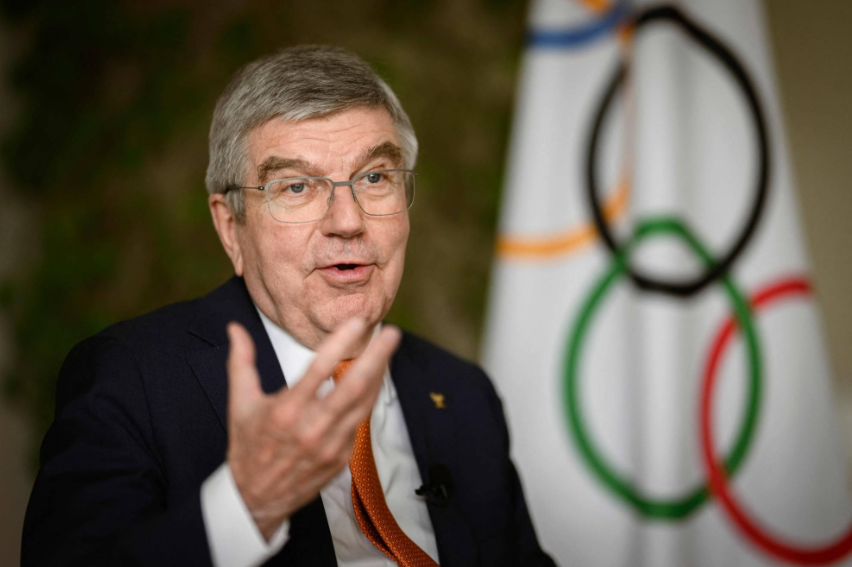By Robert Egbe
On October 16, 2021, the Executive Board (EB) of the International Olympic Committee (IOC) endorsed the Olympism 365 strategy which aims to strengthen the role of sport as an enabler for the United Nations (UN) Sustainable Development Goals (SDGs).
Through Olympism 365, the IOC, working with partners, uses sport, among other things, to help improve people’s physical and mental health and well-being.
But just before the Paris 2024 Olympics kicked off in France, the IOC teamed up with Big Soda to do the reverse: promote products known to damage health and well-being.
Big Soda is a synonym for the soft drinks industry, particularly industry giants such as The Coca-Cola Company, PepsiCo, and Keurig Dr Pepper.
The IOC teamed up with The Coca-Cola Company to “celebrate the power of sport and music” with a new song, “Hello World.”
The song, which debuted on Thursday, July 25, the day before the Paris 2024 Olympic Opening Ceremony, purported to promote unity and collaboration.
But that was not all the Olympic Games’ theme song was about. It also sends a subtle message from the video’s sponsor: Coca-Cola. The company’s unmistakable logo and bottle are displayed prominently throughout the video as images of athletes’ greatest moments flicker across the screen.
By the Hello World video, Big Soda is sending a message that they are associated with the positive values and emotions from sports that we all love to see, thus manipulating us into overlooking their damaging health harms. Big Soda wants its unhealthy drinks to be connected to positive feelings about sports and its stars, including excitement or perceptions of sports as a healthy social good.
This is just one example of Big Soda’s sports washing that the world saw throughout the 2024 Paris Olympics and is still seeing at the ongoing Paralympics.
Of particular concern is that sports sponsorship is an indirect way to reach children and teens, who may be especially susceptible to sports marketing.
READ ALSO: SSB Tax: Combating manufacturers’ lies and disregard for Public Health
A 2018 study by Dixon H, Scully M, Wakefield M, Kelly B, Pettigrew S, Chapman K, et al titled “The impact of unhealthy food sponsorship vs. pro-health sponsorship models on young adults’ food preferences: a randomised controlled trial” found that parents often perceive food products as healthier when they are endorsed by a professional athlete, making them more likely to purchase them. The study also found that children strongly recall sponsors of their youth and professional teams and report favourable attitudes toward food and beverage companies for the sponsorship of events.
Why does this matter? The reason is that sugary drinks, including Sugar-Sweetened Beverages (SSBs), are a major contributor to rising rates of obesity, Type 2 diabetes and heart disease, among other non-communicable diseases (NCDs) both in Nigeria and globally. Children’s exposure to pervasive, unhealthy food marketing is a major risk factor for childhood obesity. In Nigeria, no fewer than 27 per cent of all deaths are due to NCDs, according to the World Health Organisation (WHO) Country Disease Outlook 2023. The five major risk factors for NCDs are excessive consumption of alcohol, tobacco use, physical inactivity, air pollution and unhealthy diets, including SSBs.
Additionally, plastic pollution, carbon emissions and water depletion are serious global concerns increasingly being linked to the sugary drinks industry and are also significant drivers of the climate crisis.
Thus, the IOC’s association with Big Soda is undermining its noble vision to use sports to build a better world.
Already, an online petition has been created by Kick Big Soda Out of Sport to urge the IOC to end Coca-Cola’s sponsorship deal and to commit to partnerships that align with Olympic values. It has garnered over 197,813 signatures as of September 3, 2024.
A Kick Big Soda Out spokesperson said: “Sugary drinks harm people and our planet. By accepting billions from Coca-Cola to sponsor the Olympic Games, the International Olympic Committee (IOC) implicitly endorses a world where health and environmental harms are ‘sports-washed’ away, undermining commitments to use sport to create a better world.
“By kicking Big Soda out of the Olympics, the IOC will show the world that it is not just committed to talking about these values, but is truly committed to making the world a better place through sport.”
Corporate Accountability and Public Participation Africa (CAPPA) joins Kick Big Soda Out of Sport and its 91 other partner organisations who believe that sugary drinks harm people and our planet and that by accepting billions from Coca-Cola to sponsor the Olympic Games, the IOC implicitly endorses a world where health and environmental harms are “sports-washed” away, undermining commitments to use sport to create a better world.
We demand that the IOC live up to its responsibility to prioritize the health and well-being of people and our planet over Big Soda’s corporate interests. The IOC must, in the interest of public health, end its practice of helping Big Soda use healthy sports to promote unhealthy products.
Egbe is a public health advocate at Corporate Accountability and Public Participation Africa (CAPPA). He can be reached via regbe@cappaafrica.org


